Venerable Sisoes the Great
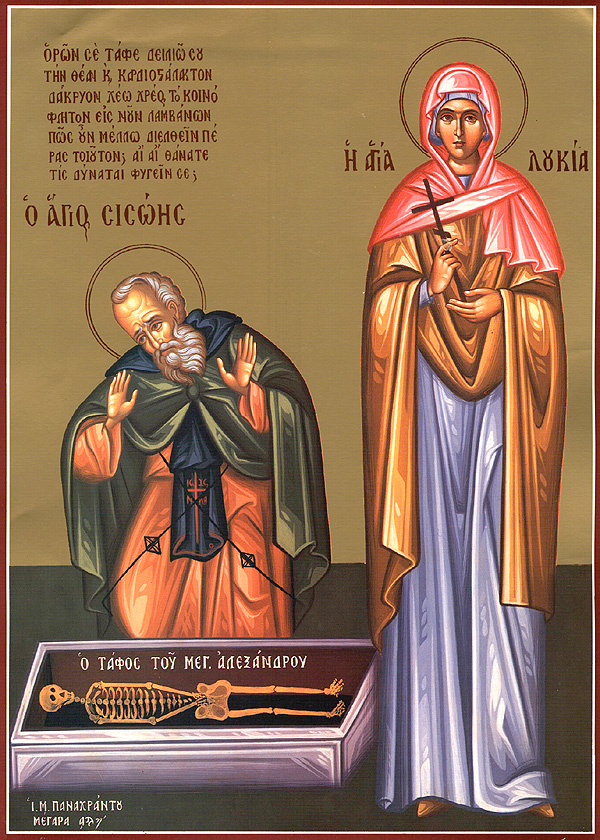 Saint Sisoes the Great (+ 429) was a solitary monk, pursuing asceticism in the Egyptian desert in a cave sanctified by the prayerful labors of his predecessor, Saint Anthony the Great (January 17). For his sixty years of labor in the desert, Saint Sisoes attained to sublime spiritual purity and he was granted the gift of wonderworking, so that by his prayers he once restored a dead child back to life.
Saint Sisoes the Great (+ 429) was a solitary monk, pursuing asceticism in the Egyptian desert in a cave sanctified by the prayerful labors of his predecessor, Saint Anthony the Great (January 17). For his sixty years of labor in the desert, Saint Sisoes attained to sublime spiritual purity and he was granted the gift of wonderworking, so that by his prayers he once restored a dead child back to life.
Extremely strict with himself, Abba Sisoes was very merciful and compassionate to others, and he received everyone with love. To those who visited him, the saint first of all always taught humility. When one of the monks asked how he might attain to a constant remembrance of God, Saint Sisoes remarked, “That is no great thing, my son, but it is a great thing to regard yourself as inferior to everyone else. This leads to the acquisition of humility.” Asked by the monks whether one year is sufficient for repentance if a brother sins, Abba Sisoes said, “I trust in the mercy of God that if such a man repents with all his heart, then God will accept his repentance in three days.”
The Holy Wonderworkers and Unmercenary Physicians Cosmas and Damian of Asia Minor
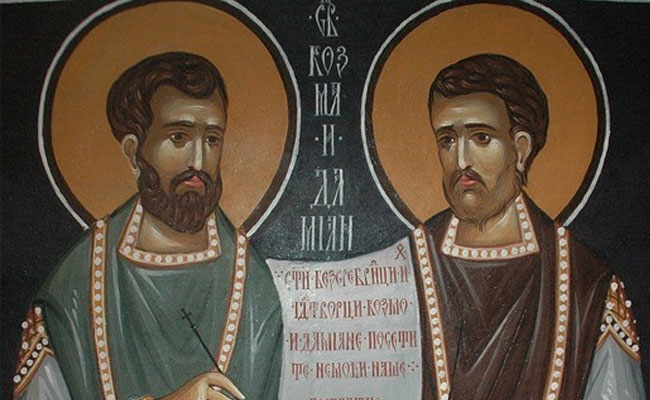 The Holy Wonderworkers and Unmercenary Physicians Cosmas and Damian were born somewhere in Asia Minor by their pagan father and Christian mother. When their father died, while they were still quite small children, their mother St. Theodata raised them in Christian piety. Trained and skilled as physicians, they received from the Holy Spirit the gift of healing people's illnesses of body and soul by the power of prayer. With fervent love for both God and neighbor, they never took payment for their services, so that is why they were called the Unmercenary Physicians. They strictly observed the command of our Lord Jesus Christ, "Freely have you received, freely give." (Mt. 10:8).
The Holy Wonderworkers and Unmercenary Physicians Cosmas and Damian were born somewhere in Asia Minor by their pagan father and Christian mother. When their father died, while they were still quite small children, their mother St. Theodata raised them in Christian piety. Trained and skilled as physicians, they received from the Holy Spirit the gift of healing people's illnesses of body and soul by the power of prayer. With fervent love for both God and neighbor, they never took payment for their services, so that is why they were called the Unmercenary Physicians. They strictly observed the command of our Lord Jesus Christ, "Freely have you received, freely give." (Mt. 10:8).
Saint Lazar the Great Martyr of Kosovo
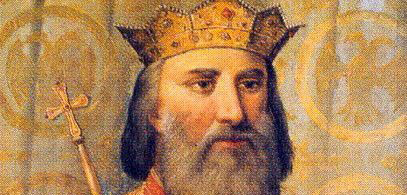
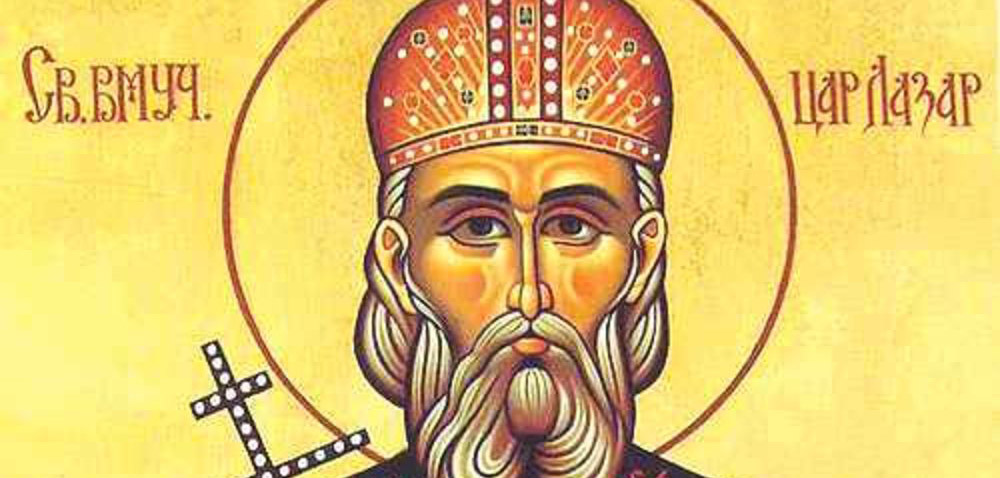 Prince Lazar was born in 1329 in Prilepac to the aristocrat family Hrebeljanović.
Prince Lazar was born in 1329 in Prilepac to the aristocrat family Hrebeljanović.
His father Pribac was a Logotet-secretary doing very confidential work for King Dušan the Powerful in the royal palace. Young Lazar was raised in the palace, and was respected by the King who entrusted him with the rule of two parts of his kingdom: Srem and Mačva. Lazar married Milica the daughter of an important aristocrat named Vratko also known as Yug Bogdan - a very wise and honorable man from the Nemanjic family. Lazar had three sons: Stevan, Vuk and Lazar and five daughters: Jelena, Mara, Despa, Vukosava and Mileva.
The Holy Prophet Elisseus (Elisha)
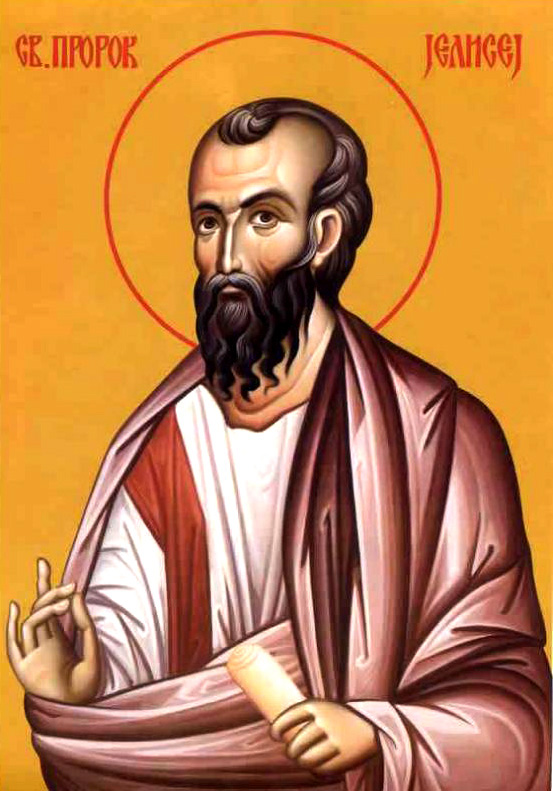 The Prophet Elisseus, the son of Saphat, was from the town of Abel-me-oul and had been a husbandman. In the year 908 B.C., at God's command, the Prophet Elias anointed him to be Prophet in his stead. This happened while Elisseus was plowing his land, having twelve oxen under yoke. Straightway, Elisseus slew the oxen and cooked them, using the wooden plough and the other instruments of husbandry as firewood; then he gave the oxen as food to the people. Bidding farewell to his parents, he followed Elias and served him until the latter was taken up as it were into Heaven (see July 20). When Elisseus received his teacher's mantle and the grace of his prophetic spirit twofold, he demonstrated whose disciple he was through the miracles he wrought and through all that is related of him in the Fourth Book of Kings. He departed full of days and was buried in Samaria, about the year 839 B.C. But even after his death God glorified him; for after the passage of a year, when some Israelites were carrying a dead man for burial and suddenly saw a band of Moabites, they cast the dead man on the grave of the Prophet. No sooner had the dead man touched the Prophet's bones, than he came to life and stood on his feet (IV Kings 13:20-21). Mentioning this, Jesus the Son of Sirach says, "He did wonders in his life, and at his death his works were marvelous" (Ecclus. 48:14). It is because of such marvels that the faithful have reverence for the relics of the Saints (see also Jan. 16). His name means "God is savior."
The Prophet Elisseus, the son of Saphat, was from the town of Abel-me-oul and had been a husbandman. In the year 908 B.C., at God's command, the Prophet Elias anointed him to be Prophet in his stead. This happened while Elisseus was plowing his land, having twelve oxen under yoke. Straightway, Elisseus slew the oxen and cooked them, using the wooden plough and the other instruments of husbandry as firewood; then he gave the oxen as food to the people. Bidding farewell to his parents, he followed Elias and served him until the latter was taken up as it were into Heaven (see July 20). When Elisseus received his teacher's mantle and the grace of his prophetic spirit twofold, he demonstrated whose disciple he was through the miracles he wrought and through all that is related of him in the Fourth Book of Kings. He departed full of days and was buried in Samaria, about the year 839 B.C. But even after his death God glorified him; for after the passage of a year, when some Israelites were carrying a dead man for burial and suddenly saw a band of Moabites, they cast the dead man on the grave of the Prophet. No sooner had the dead man touched the Prophet's bones, than he came to life and stood on his feet (IV Kings 13:20-21). Mentioning this, Jesus the Son of Sirach says, "He did wonders in his life, and at his death his works were marvelous" (Ecclus. 48:14). It is because of such marvels that the faithful have reverence for the relics of the Saints (see also Jan. 16). His name means "God is savior."
Holy Apostles Bartholomew and Barnabas
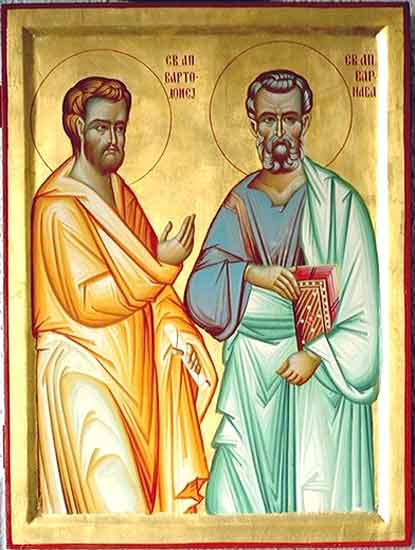 Saint Bartholomew, the Apostle. Bartholomew was one of the Twelve Great Apostles. In all probability, it appears that Bartholomew and Nathaniel are one and the same person. He was a companion of the Apostle Philip and Philip's sister, the virgin Mariamna and, for some time, a companion of St. John the Theologian. Bartholomew preached the Gospel first throughout Asia and, after that, in India and finally in Armenia where he died a martyr's death. In Hierapolis, these holy apostles by prayer, caused the death of a large serpent which the heathens kept in their temple and worshipped. In this same city and, by prayer, they restored sight to Stachius who was blind for forty years. It was here that a mob rose up against them and they crucified Philip and Bartholomew (Bartholomew was crucified upside down). At this time, an earthquake occurred in which the evil judges and may people perished. Feeling that this was a punishment from God, many ran to remove the apostles from the crosses but Philip was already dead while Bartholomew was still alive. After this, Bartholomew went to India where he preached and translated the Gospel of St. Matthew into the Indian language.
Saint Bartholomew, the Apostle. Bartholomew was one of the Twelve Great Apostles. In all probability, it appears that Bartholomew and Nathaniel are one and the same person. He was a companion of the Apostle Philip and Philip's sister, the virgin Mariamna and, for some time, a companion of St. John the Theologian. Bartholomew preached the Gospel first throughout Asia and, after that, in India and finally in Armenia where he died a martyr's death. In Hierapolis, these holy apostles by prayer, caused the death of a large serpent which the heathens kept in their temple and worshipped. In this same city and, by prayer, they restored sight to Stachius who was blind for forty years. It was here that a mob rose up against them and they crucified Philip and Bartholomew (Bartholomew was crucified upside down). At this time, an earthquake occurred in which the evil judges and may people perished. Feeling that this was a punishment from God, many ran to remove the apostles from the crosses but Philip was already dead while Bartholomew was still alive. After this, Bartholomew went to India where he preached and translated the Gospel of St. Matthew into the Indian language.






